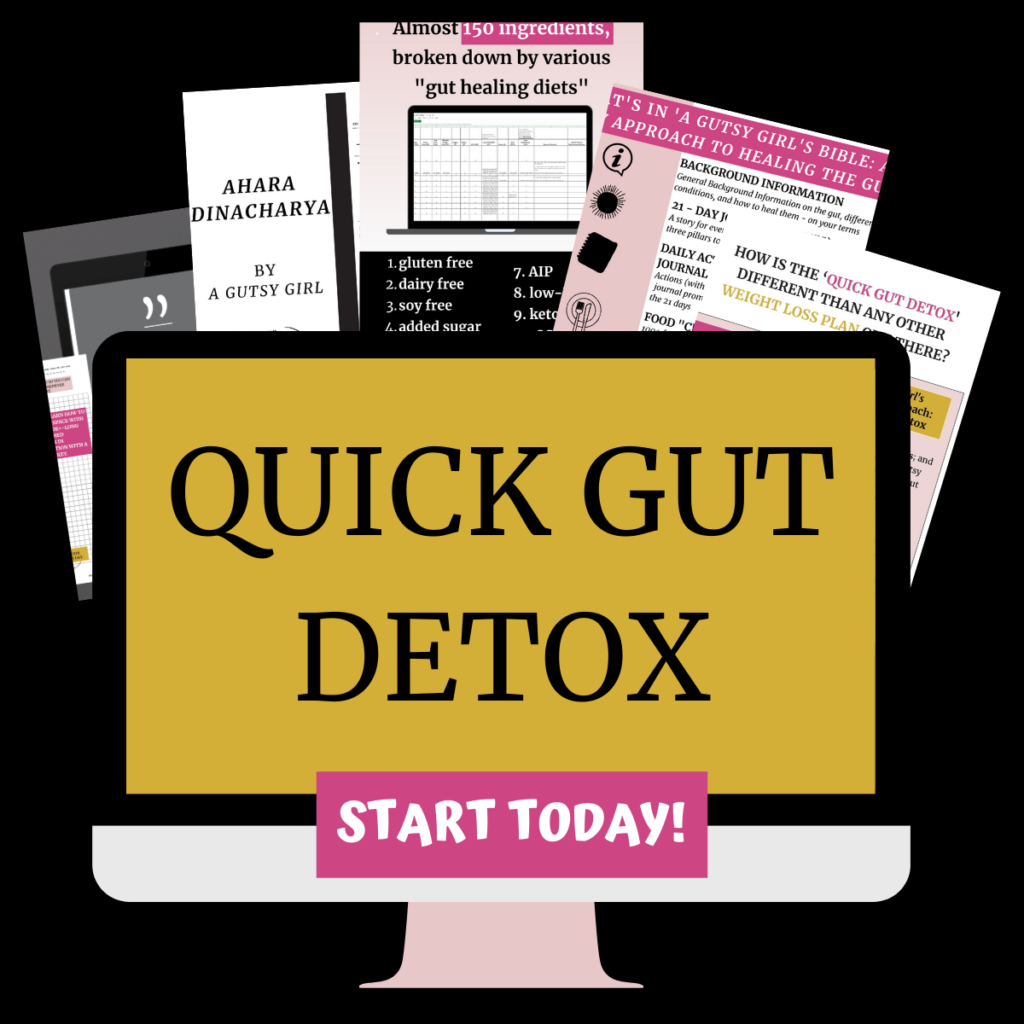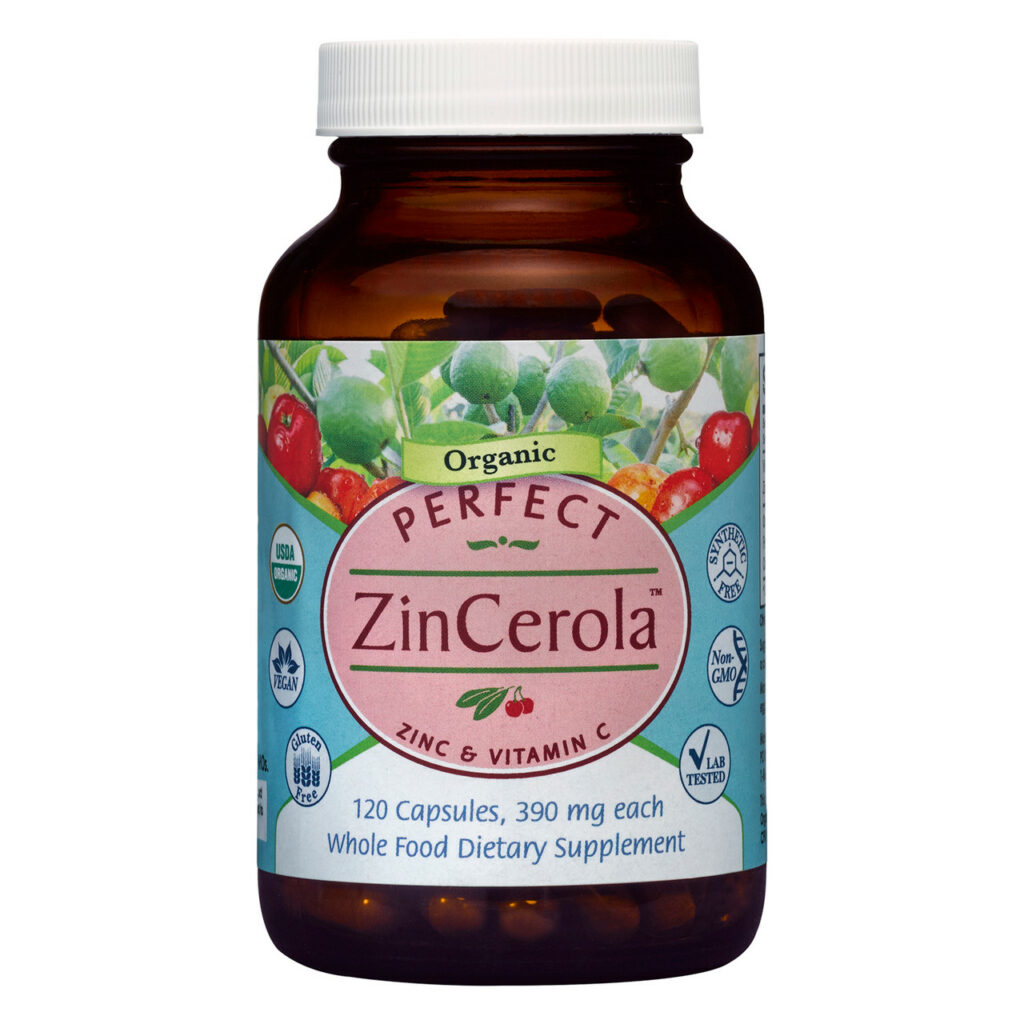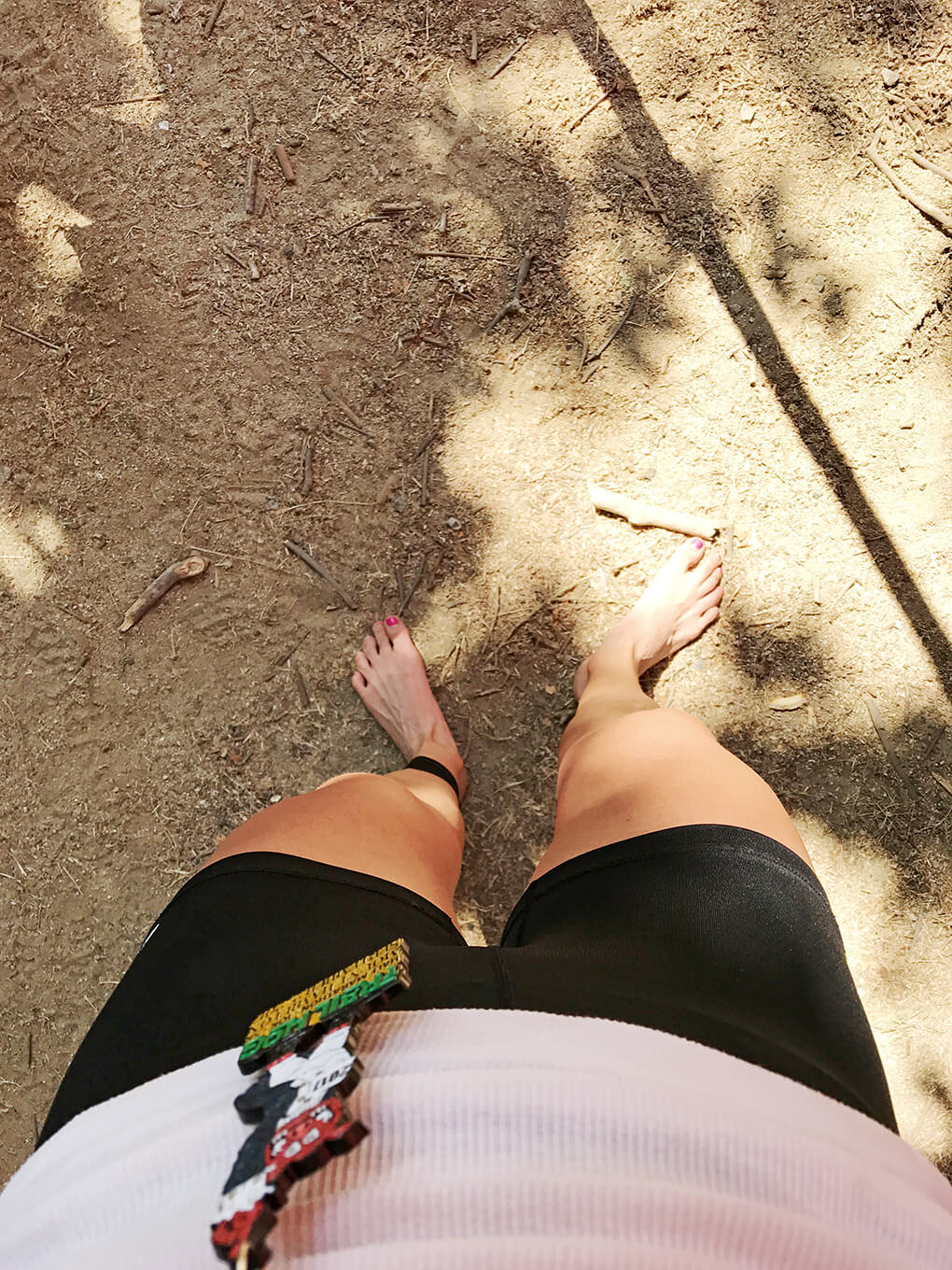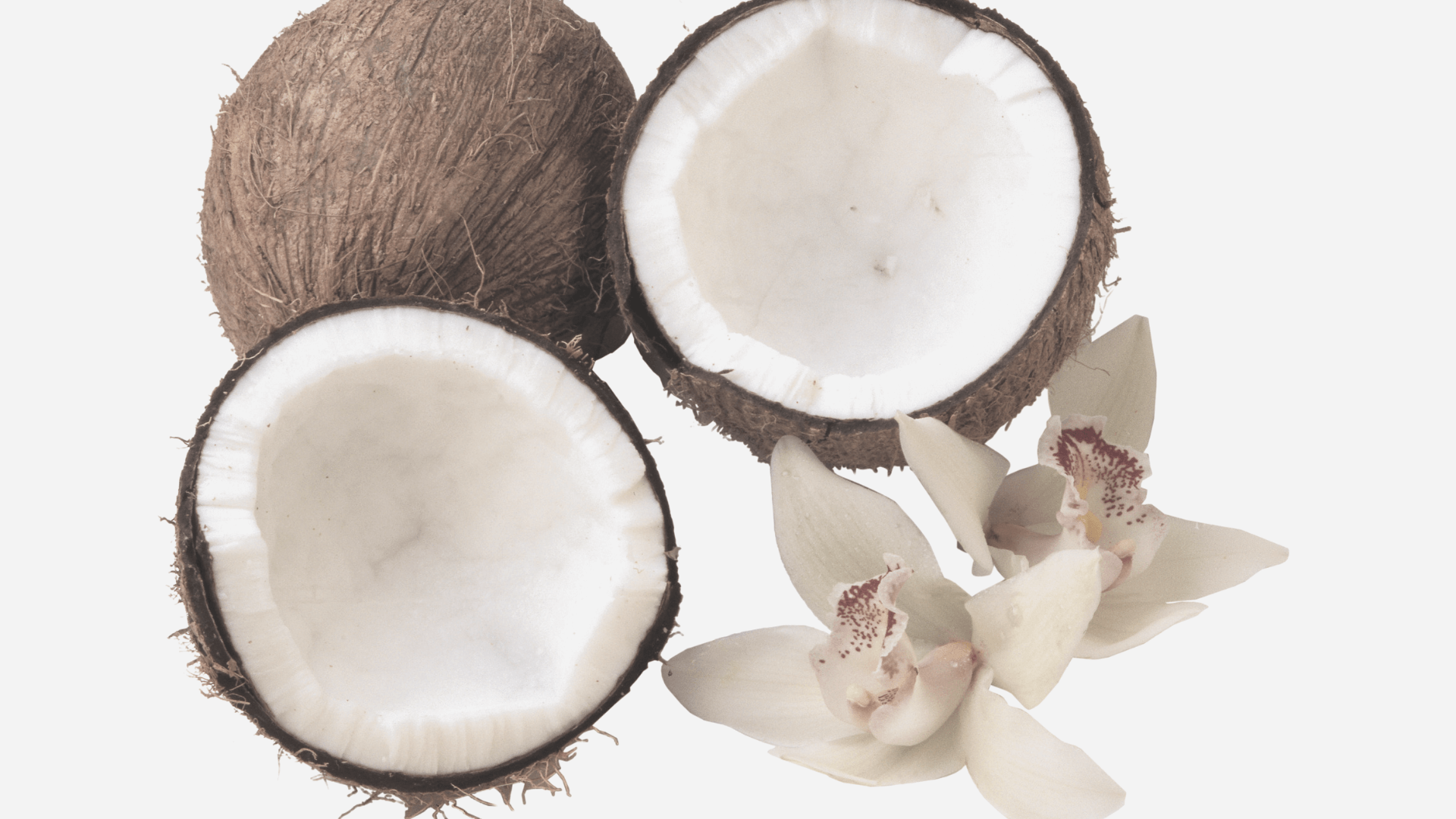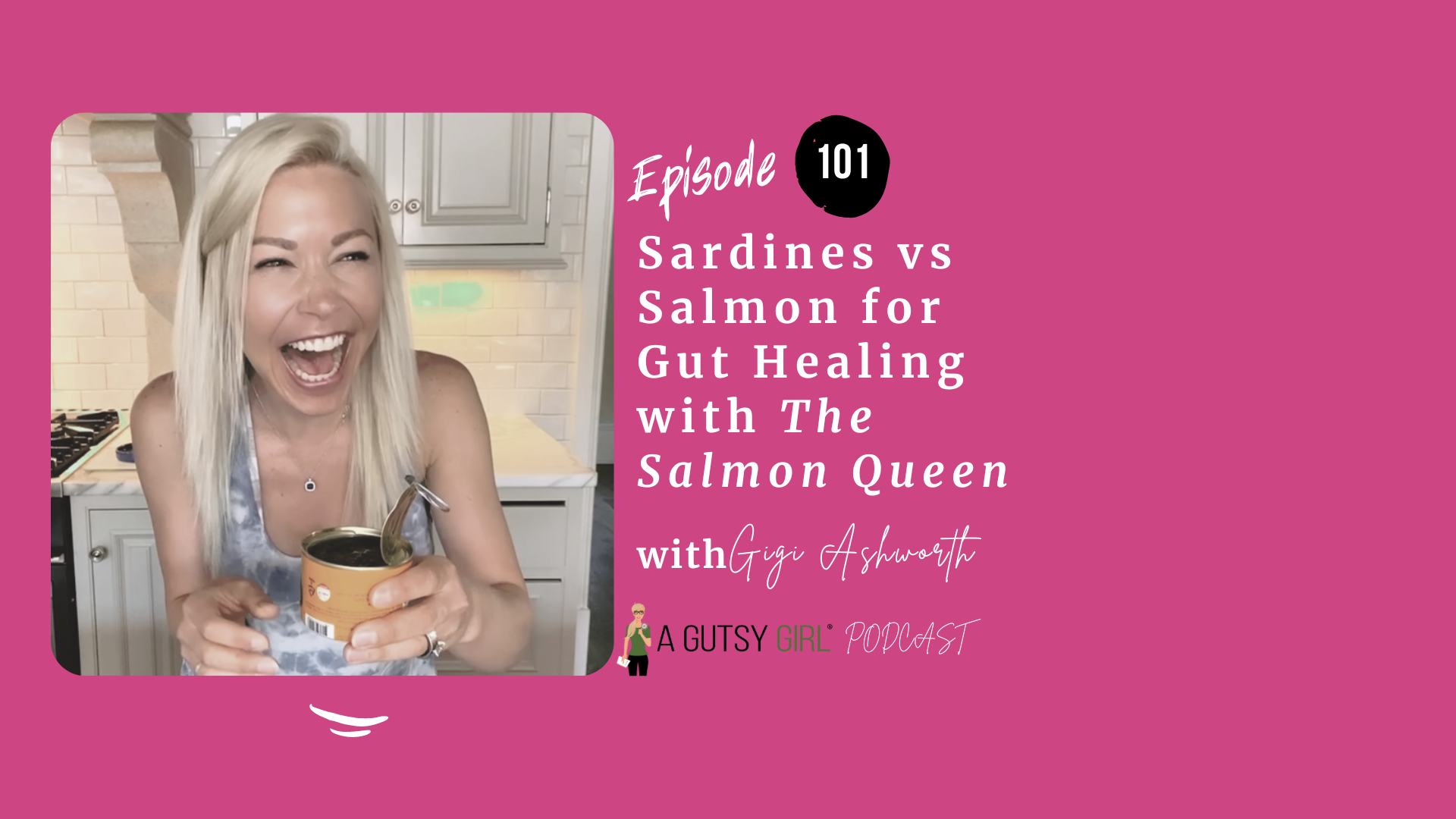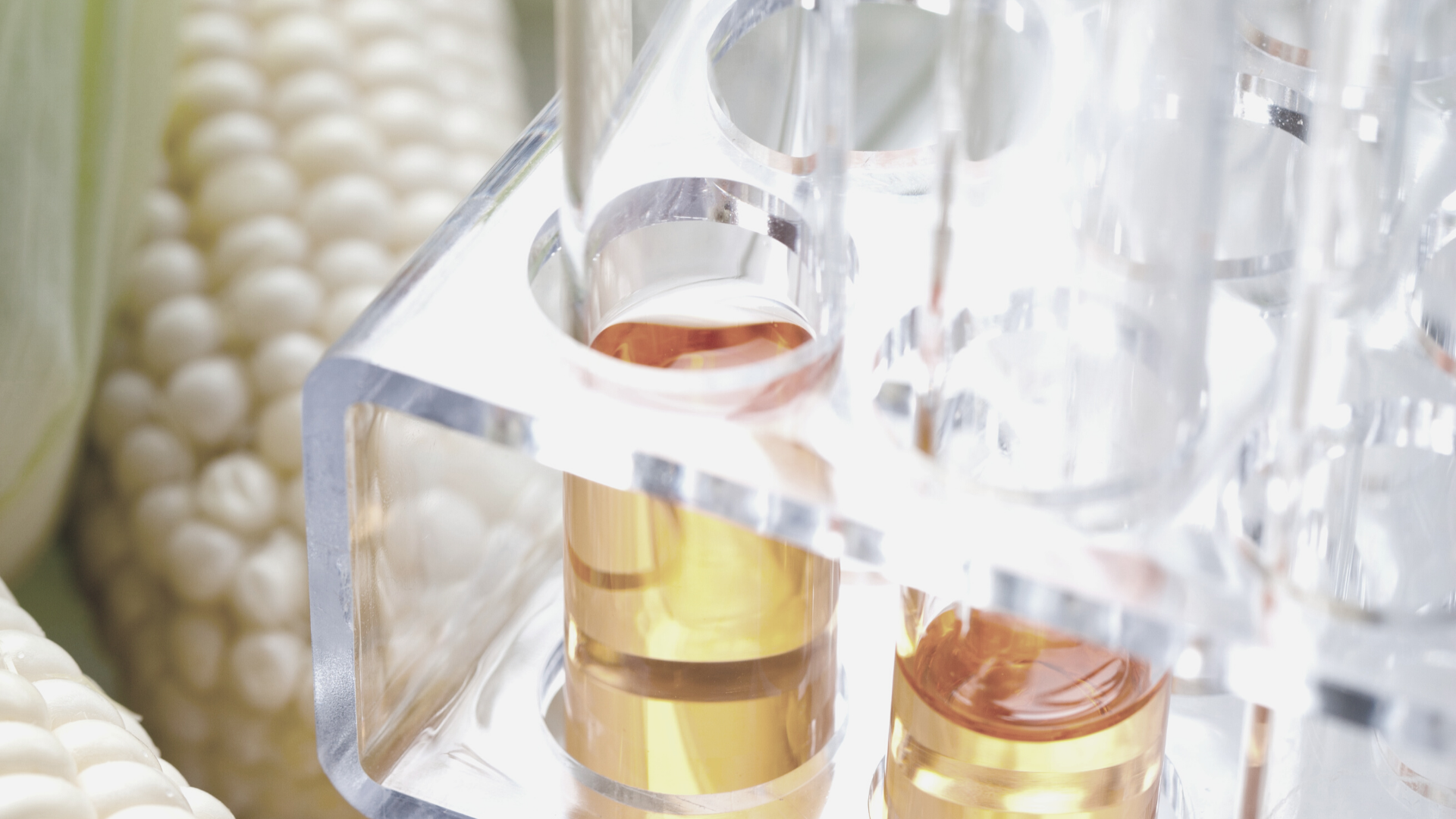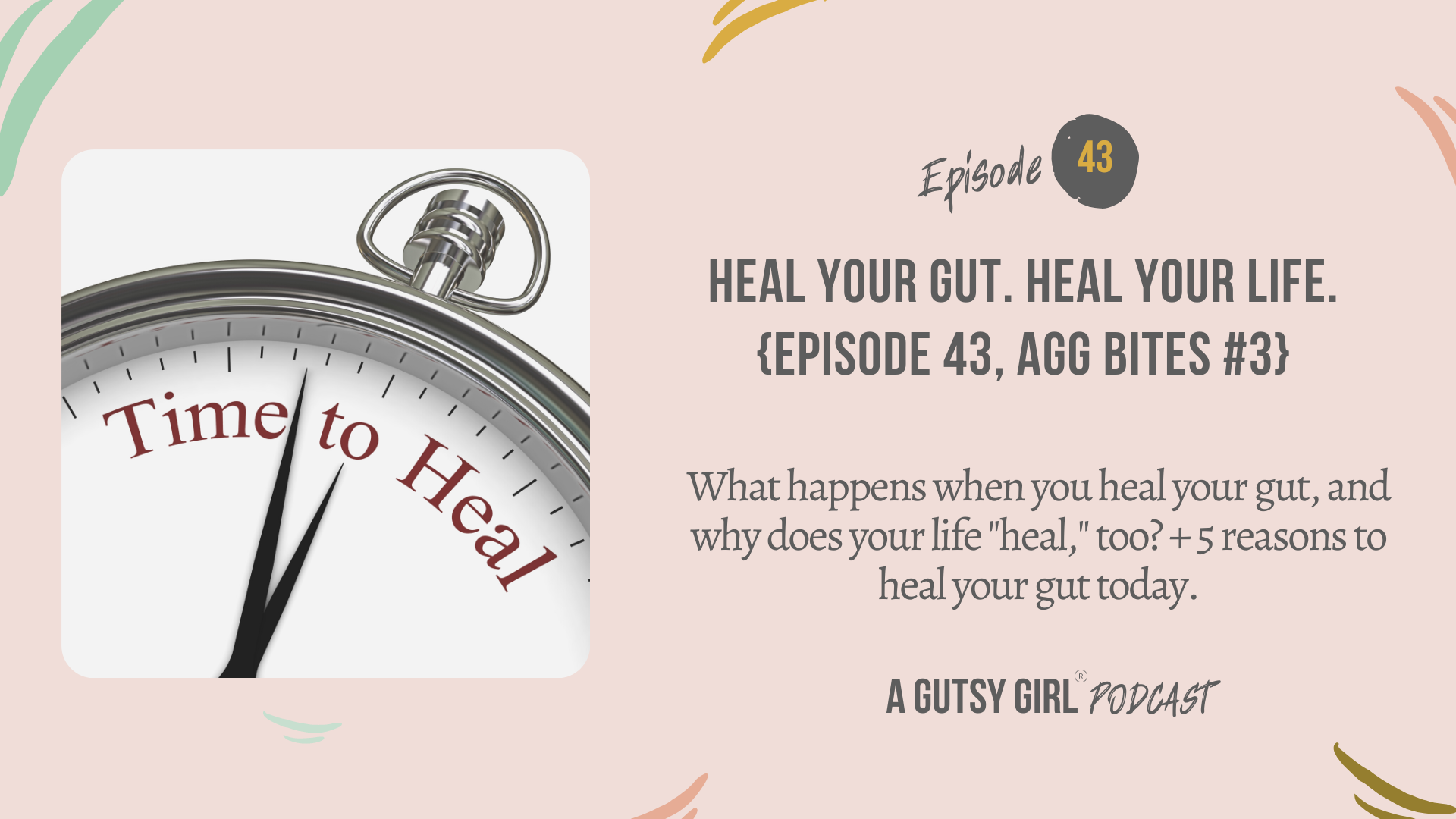Does zinc help you lose weight?
You already know that my main goal here is to help women get rid of bloating and lose weight by focusing on the gut.
Many women feel embarrassed by their bloat and weight.
And because I was once there, I now teach you how to get rid of all of that by prioritizing gut health so that you can know your worth and feel confident 24/7.
In my never-ending quest for understanding all the nuances towards achieving this, I stumbled upon zinc supplementation as yet another helper-bee to the equation.
There are, after all, several different strategies to employ for reducing bloat and weight simply by focusing on the gut microbiome.
If you’re looking for a jumpstart to weight management, significant bloat reduction and increased gut health, I’m inviting you to join the Quick Gut Detox now.
It’s my 21-day program based off the signature book, A Gutsy Girl’s Bible: a 21-day approach to healing the gut.
Zinc for Good Health
Writing about zinc and gut health is nothing new around here. I wrote about it back in 2020.
So let’s start there, before even having the weight loss conversation.
What is Zinc?
Zinc is an essential trace mineral that is involved in numerous aspects of cellular metabolism.
It is required for the catalytic activity of approximately 100 enzymes and it plays a key role in immune function, protein synthesis, wound healing, DNA synthesis, and cell division.
Zinc has SO many functions across the human body including:
- aids in over 300 enzymatic reactions
- synthesis of immune cells
- support of immune function
- protein synthesis
- support of skin health
- HUGE player in cell growth
- supports both smell and taste
- maintenance of testosterone levels
- wound healing
- DNA synthesis- provides blueprint for all functions in the body
As you can see, zinc has a wide range of physiological processes across the digestive, immune, and metabolic systems.
It plays a crucial role in both the immune and digestive systems, which are important for keeping the gut in balance.
Source: HERE
The recommended daily allowances include:
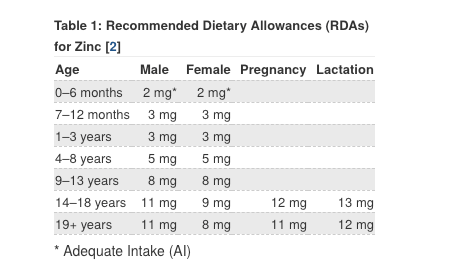
Symptoms of a Zinc Deficiency
And how might you know if you have lower levels of zinc?
Here are some signs and symptoms of a zinc deficiency:
- Age-related macular degeneration
- Diarrhea
- Hair loss
- Impaired vision
- Loss of taste or smell
- Poor appetite
- Depressed mood
- Decreased immunity
- Delayed wound healing
- Histamine intolerance
- Skin ulcers and acne
Make note:
A zinc deficiency isn’t extremely common. However, those with comprised guts are far more at risk than the average person due to absorption issues.
In fact, two groups of people who tend to have zinc deficiencies are those with a GI disorder or those who have a strict plant-based food diet.
Does zinc help you lose weight?
Click HERE to save this article on ‘Does zinc help you lose weight?’ for later.
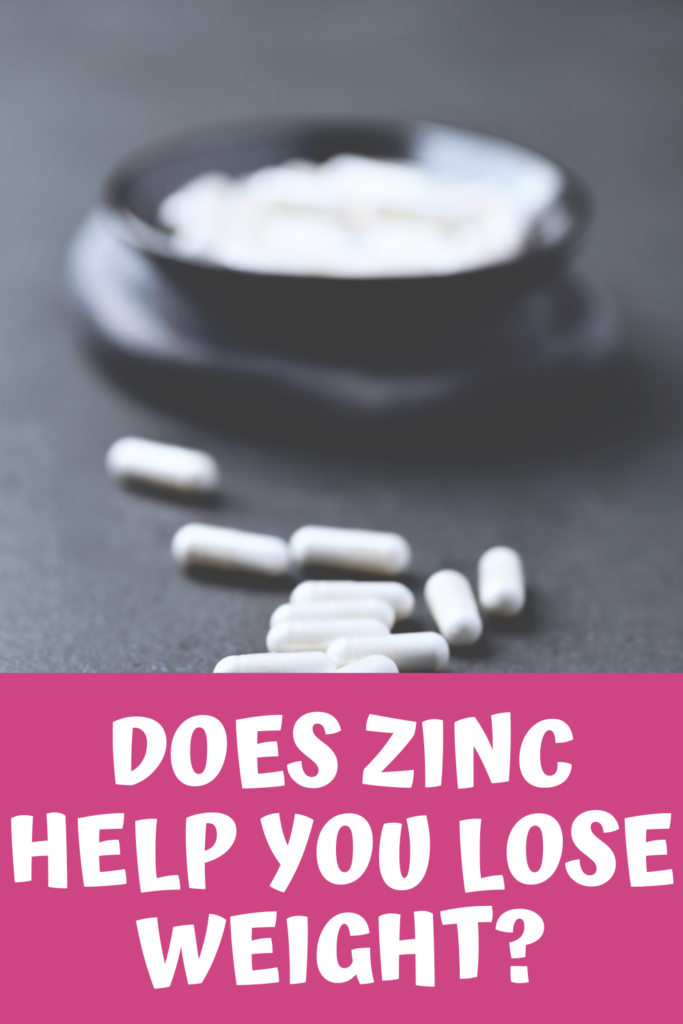
Now that you know a little bit about zinc and even some symptoms of zinc deficiency, the question you’re still wanting answered is…..but does zinc help you lose weight?
Let’s break down some facts:
- According to the National Institutes of Health and a clinical trial performed, results included: The reductions of body weight, body mass index, waist circumference, and hip circumference were significantly higher in the zinc group compared to the placebo group (P = 0.032, 0.025, 0.003, and 0.0001, respectively). Lower levels of high sensitivity C-reactive protein, apelin, homeostatic model assessment of insulin resistance (HOMA-IR), and appetite score were observed in the zinc group in comparison with the placebo group (P = 0.0001, 0.001, 0.031 and 0.001 respectively). (source)
- Zinc plays an important role in enzyme function and metabolic regulation, and is a significant modulator of appetite and eating behaviors. (source)
- Zinc keeps blood sugar levels stable. So, a zinc deficiency could negatively affect insulin levels, which can lead to unwanted changes in appetite and blood sugar levels. (source)
- “Zinc helps metabolize protein, carbs, and fat. When you don’t have enough, you can experience reduced energy, and sluggishness.” You might also have a harder time losing weight—in fact, one study published in 2019 found zinc supplements to aid in weight loss. (source)
So if we accept the notion that getting enough zinc can help you lose weight, then I must also share with you the direct gut-health implications.
Remember, I’m NOT focused solely on weight loss, but instead about bloating and weight reduction through optimal gut health.
Zinc and Gut Health
Save these zinc + gut health facts for later by clicking HERE.
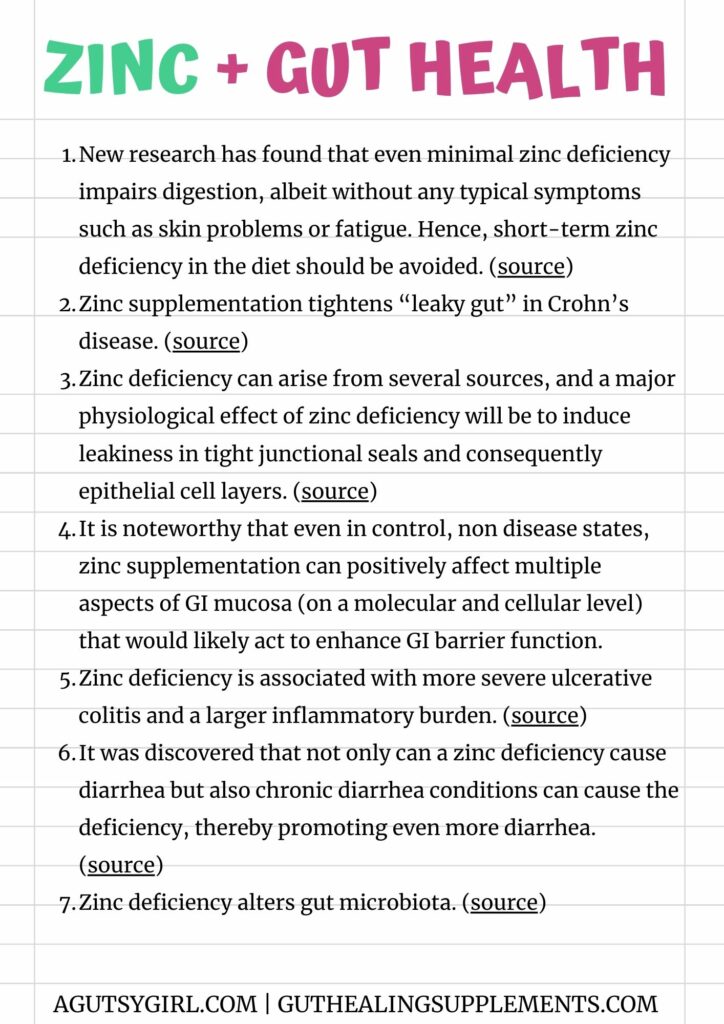
- New research has found that even minimal zinc deficiency impairs digestion, albeit without any typical symptoms such as skin problems or fatigue. Hence, short-term zinc deficiency in the diet should be avoided. (source)
- Zinc supplementation tightens “leaky gut” in Crohn’s disease. (source)
- Zinc deficiency can arise from several sources, and a major physiological effect of zinc deficiency will be to induce leakiness in tight junctional seals and consequently epithelial cell layers. (source)
- It is noteworthy that even in control, non disease states, zinc supplementation can positively affect multiple aspects of GI mucosa (on a molecular and cellular level) that would likely act to enhance GI barrier function.
- Zinc deficiency is associated with more severe ulcerative colitis and a larger inflammatory burden. (source)
- It was discovered that not only can a zinc deficiency cause diarrhea but also chronic diarrhea conditions can cause the deficiency, thereby promoting even more diarrhea. (source)
- Zinc deficiency alters gut microbiota. (source)
Am I Deficient in Zinc?
So how do you know if you have low levels of zinc?
Well, that’s easy.
Test for it!
If you are having zinc deficiency symptoms, your healthcare provider can easily test your zinc levels through a simple blood test.
There are also other ways to test for it, including a urine test and/or analysis of hair strand to measure how much zinc your body is receiving.
Sometimes if your health care provider suspects low zinc levels, they will simply have you use zinc dietary supplements and increase zinc intake through a healthy diet to see if that helps resolve symptoms.
So to that extent……
What are Zinc-Rich Foods?
Here is a list of my favorite top 13 food sources containing zinc:
- Oysters
- Alaskan crab
- Hemp seeds
- Cashews
- Pumpkin seeds
- Grass-fed beef
- Chickpeas
- Lentils
- Black beans
- Chia seeds
- Raw oats
- 70%+ dark chocolate
- Guava leaves
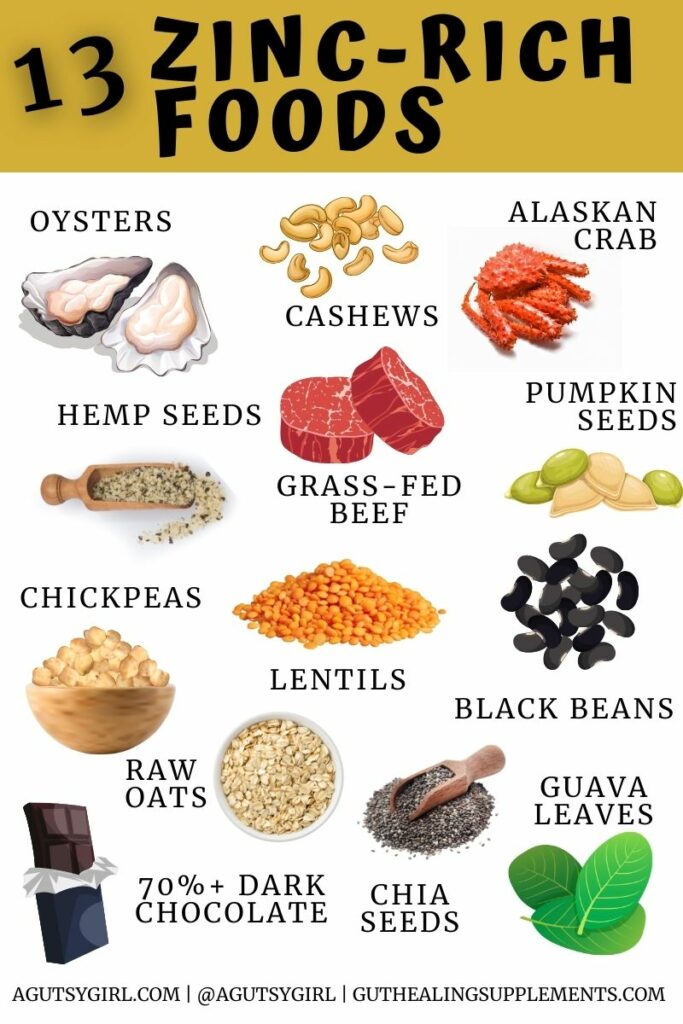
Note that with grains and legumes, zinc absorption is reduced due to high levels of phytic acid. For this reason, meat and seafood are better choices.
However, I understand both the not-wanting-to-over-red meat and also the healing sides so I like to incorporate various sources.
Increasing food intake with zinc-rich foods might be all you need.
However, when food alone doesn’t prove to be enough for getting the zinc benefits the body needs, we typically turn to supplementation.
Oral Zinc Supplements
Some of the different types of zinc supplements include:
- zinc gluconate- fairly well absorbed and found in over-the-counter supplements and cold medicines
- zinc acetate- usually added to cold medications
- zinc sulfate- helps with both low zinc levels and targets acne
- zinc picolinate- one of the best absorbed forms of zinc
- zinc orotate- very widely available, bound to orotic acid, small molecules easily pass through gut membrane
- zinc citrate- appealing due to its slightly sweet taste, well absorbed by the gut
If you want a FULL breakdown of this essential mineral, check out the article I wrote: Zinc Bisglycinate vs Zinc Gluconate HERE.
In the article, I focus on chelated zinc bisglycinate via Nourish Plus, which I still think is superior for getting in this essential nutrient.
However, I also want to highlight another form of zinc I’ve run across and believe to be incredible: ZinCerola.
ZinCerola
What is ZinCerola?
This is simply: USDA Organic Vitamin C (from Acerola) and Zinc (from Guava Leaves).
The Guava leaves supply 11 mg of zinc (which is 100% daily value). And Acerola is an incredible food source of Vitamin C, which is an immune system booster.
And the combination hits on many different points this article has touched on.
Mother Nature gives us acerola cherries, which are rich in Vitamin C, and guava leaves that are a great source of Zinc.
In order for us to get 100% of the Daily Value of both Vitamin C (90mg) and Zinc (11mg) this supplement uses a 780mg blend of Organic Acerola and Organic Guava leaves.
Here is the uber-clean label:
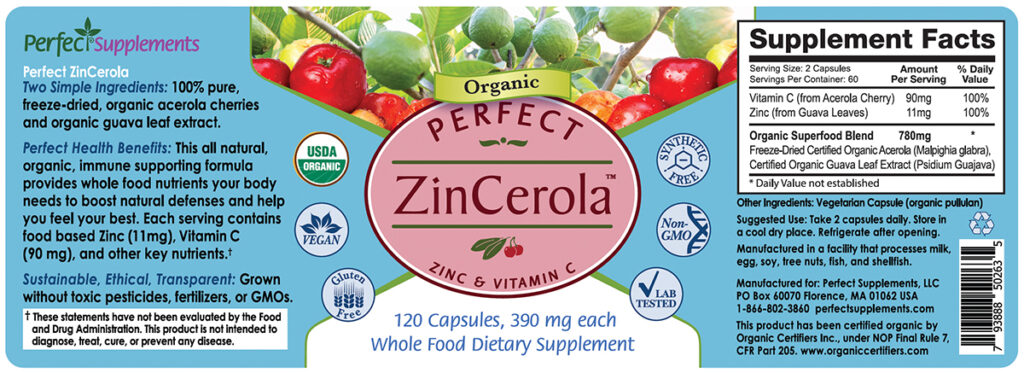
The Combination: Zinc + Vitamin C
Vitamin C and Zinc are well known for their ability to help boost your immune system. There is no doubt that if you are feeling a little run down and under the weather, Vitamin C and Zinc are a powerful pair to get you feeling better soon.
But here are some things that Vitamin C and Zinc can help with, beyond the immune system:
- Provide A Powerful Antioxidant That Can Boost Your Bodies Natural Defenses*
- Helps Protect Cells from Damage Caused By Free Radicals*
- Helps Promote Blood Sugar Management*
- Helps the Body Make Collagen*
- Increases Absorption of Iron and Nutrients from Foods*
- Helps Shorten Wound Healing Times*
- Aides in Strengthening and Repairing Your Skin*
- Aides in Protein Production*
- Needed to Activate Over 300 Enzymes*
- Helps Fight Acne*
- Works to Maintain Strong Eye Health and Protect Against Vision Loss*
- Potential Protective Effect on Memory As We Age*
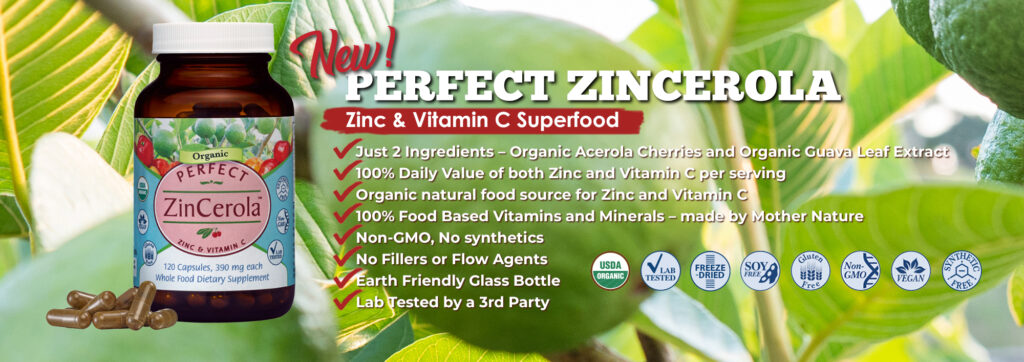
Zinc for Weight Loss + Gut Health
If we’re here to get serious about optimizing weight and reducing bloat through optimal gut health, it makes sense that we might consider zinc status.
High doses of zinc is not always the answer (in fact, high doses of anything when it’s unwarranted can definitely work against you).
But a little zinc can go a long ways if you’re deficient at all and/or experiencing gut health chronic conditions.
If you liked this article, you might also enjoy:
- Chronic Gut Inflammation and Weight Gain
- How Long Until I Lose Weight
- Weight Loss Through Optimal Gut Health
Xox,
SKH
🤰 bloating be gone! weight loss through optimal gut health for women
💃ʜᴇᴀʟ ʏᴏᴜʀ ɢᴜᴛ. ʜᴇᴀʟ ʏᴏᴜʀ ʟɪfe.
🫶🏻 founder gutbyome.com

